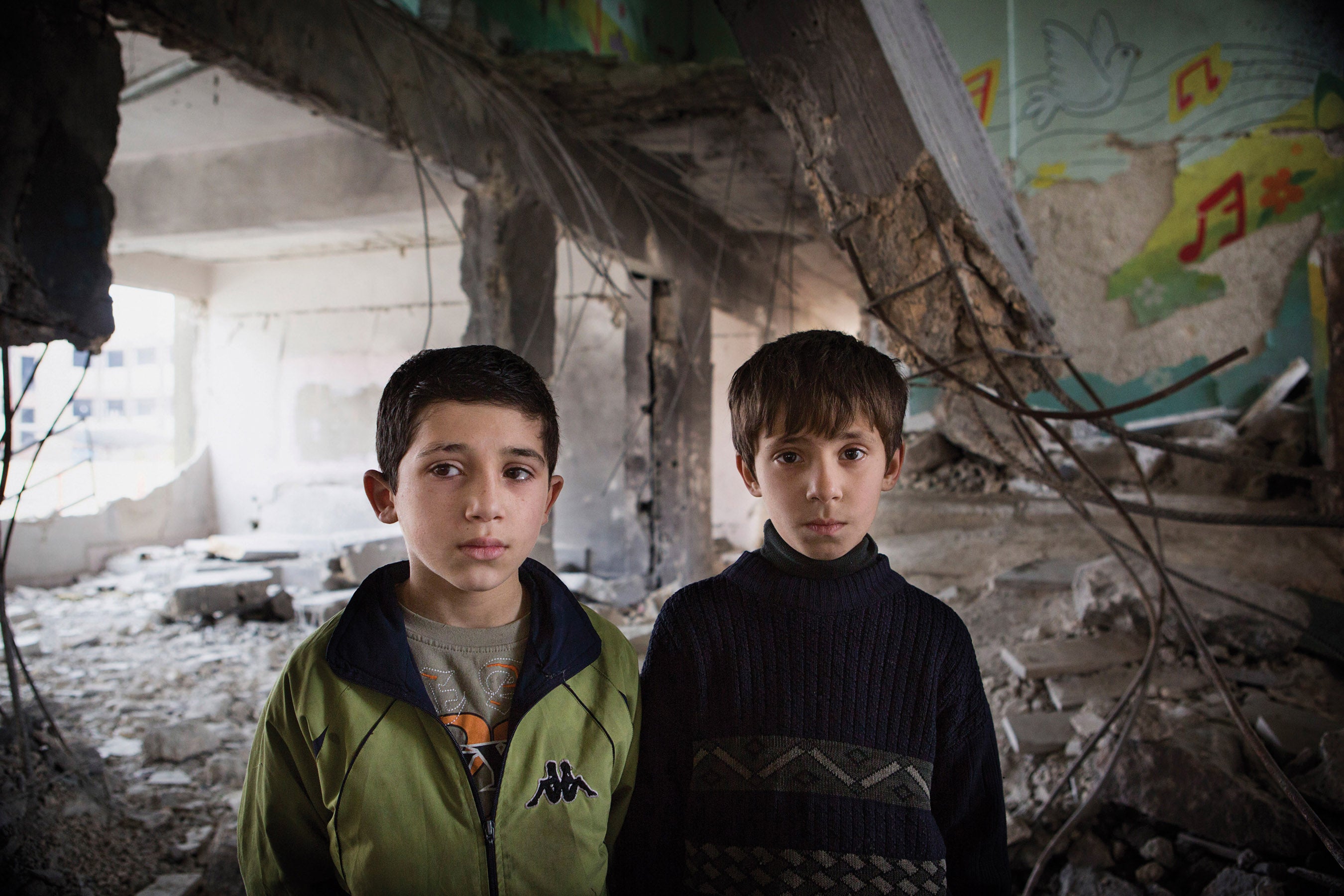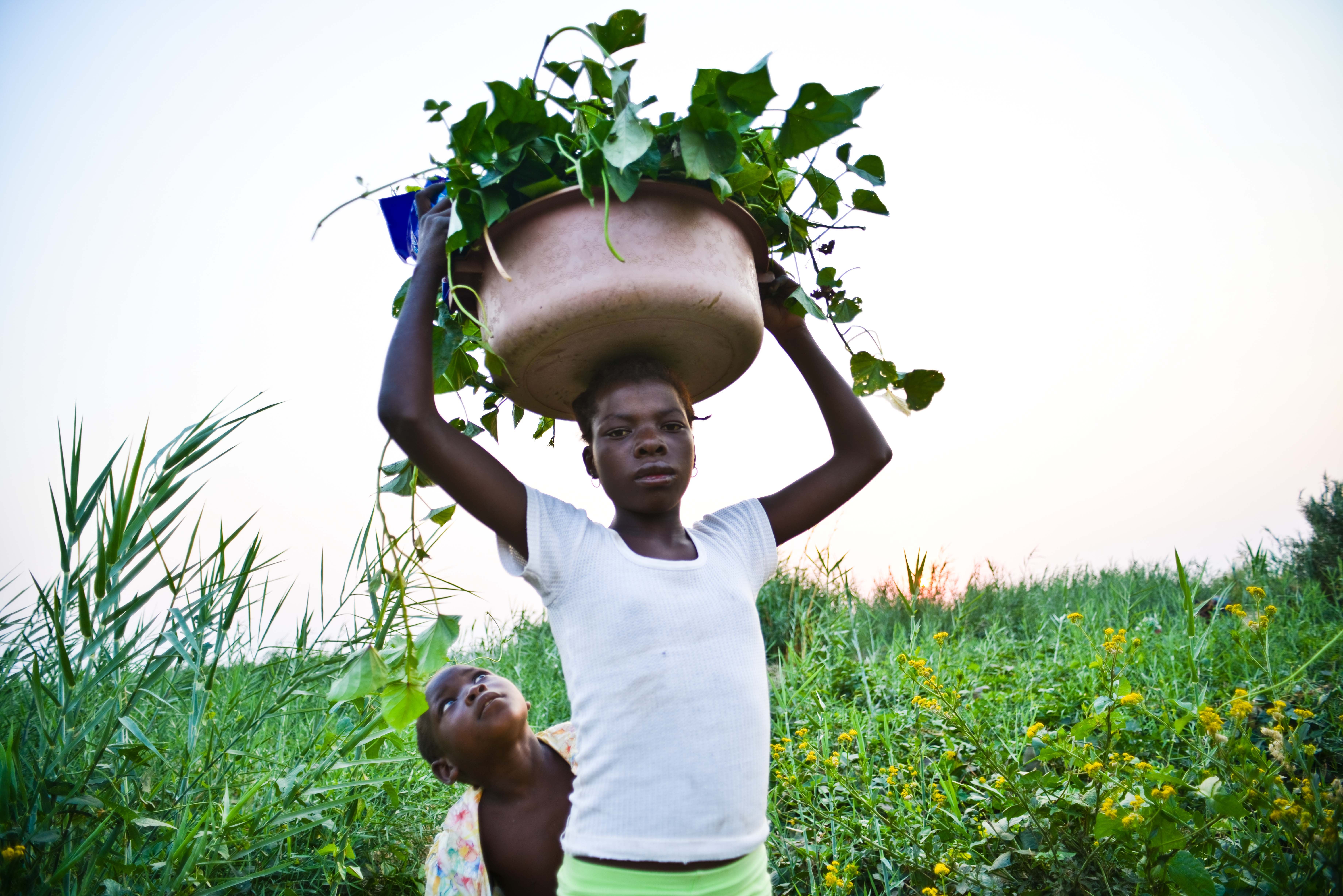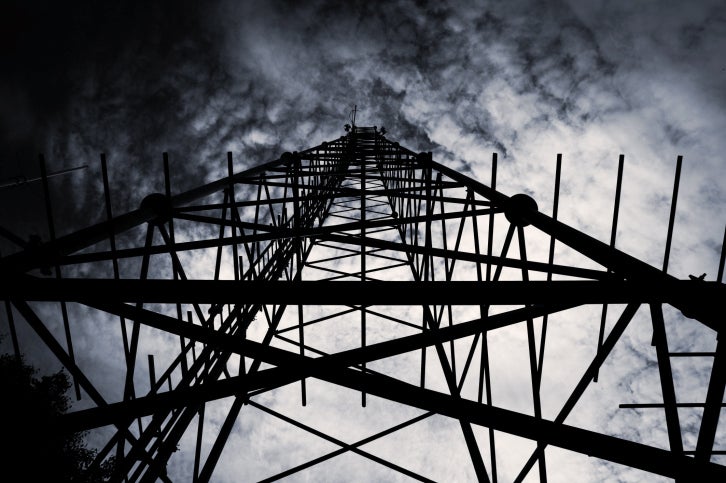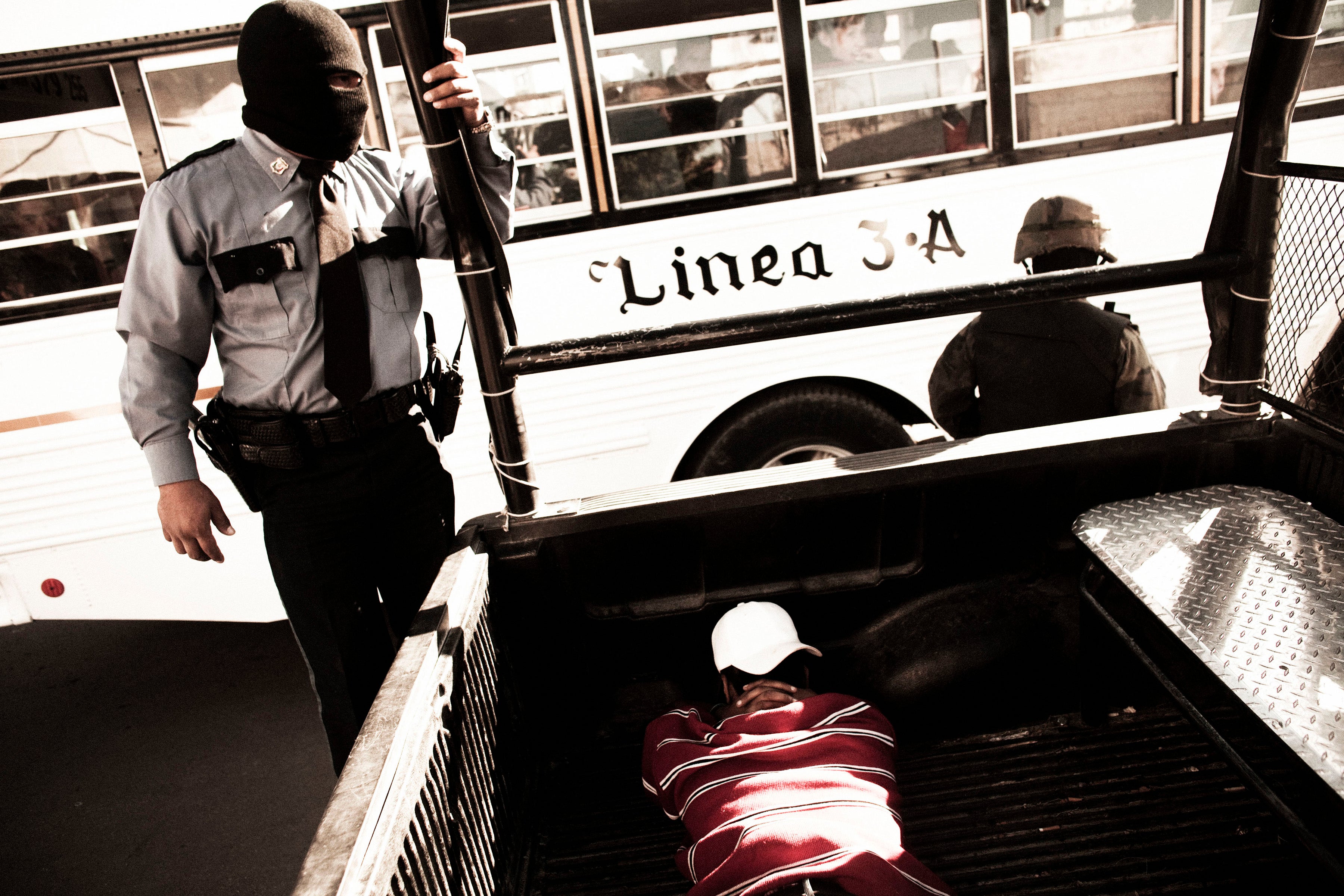South Africa continues to struggle with the legacy of apartheid and the challenges relating to addressing increasing demands from its citizens for the realization of economic and social rights as well as respect for fundamental civil and political freedoms. Although the government has been relatively successful in the provision of social services, financial mismanagement, and corruption—especially at the local government level—have seriously undermined progress in effective and efficient delivery of social and economic services.
Growing disaffection with local government, increasing poverty levels, and unemployment contributed to a resurgence of threats of violence against, and attacks on, property belonging to refugees, asylum-seekers, and migrants in the Eastern Cape and Gauteng provinces.
Xenophobic Attacks
In May and June, xenophobic attacks on the businesses and homes of refugees, asylum-seekers and migrants displaced hundreds of people in Gauteng. More than 60 foreign-owned shops were forced to close following violent looting and destruction by community members in the Orange Farm and Diepsloot areas of Gauteng. In June and September, similar attacks against Somali nationals in KwaZakhele and New Brighton in Port Elizabeth, in the Eastern Cape Province, left several shops looted and burnt. Due to the level of xenophobic violence, police had to relocate some of the foreign nationals to temporary shelters.
At time of writing no one had been arrested and charged with xenophobic violence. Instead, police arrested 21 people in Gauteng and charged them with public violence and arrested about 100 others in connection with the violence in Port Elizabeth. Official statements by members of both local and central governments have denied that violence against foreign nationals has been motivated by xenophobia or other forms of intolerance. Such statements have undermined the development of an effective, long-term strategy by the police to prevent xenophobic crimes by dealing with its root causes. On the other hand, some intervention strategies planned by local authorities in the affected areas, such as awareness campaigns and peace dialogues, sought to address xenophobia.
Inquiry into Killing of Marikana Miners
The investigation into the deaths of 44 people including the police killing of 34 miners between August 11 and 16, has been obstructed by delays of the work of the Farlam Commission of Inquiry, created to investigate the killings. The commission was asked by the government to conclude its investigation in four months, but its work slowed due to loss of vital documents (including video evidence), the deaths of witnesses, and an ongoing legal battle over state funding for lawyers representing the families of the miners killed, injured, and arrested.
The commission, which adjourned in May, resumed in July, but lawyers representing the injured and arrested miners requested another postponement, as they called on the government to cover the miners’ legal fees. The presidency and minister of justice opposed the application for funding and the lawyers took their case to the North Gauteng High Court. In July, the High Court rejected the application for state funding, with Judge Raulinga ruling that the right to state funding was not absolute for the Marikana miners. Delays in submission of video evidence led to another extension of the inquiry to October 30. On October 31, President Jacob Zuma extended the term of the Farlam Commission to April 30, 2014.
Serious concerns remain about the ongoing conduct and capacity of the South African Police Services (SAPS), both in terms of the use of force in general, as well as the ability to deal with riots in a rights-respecting manner.
Sexual Orientation and Gender Identity
South Africa played an important but inconsistent role in advancing the human rights of LGBT people internationally. On the domestic front, South Africa faced challenges in responding to widespread violence (including rape and murder) against lesbians and transgender men in the country.
In 2011, South Africa was instrumental in introducing a precedent-setting resolution at the United Nations Human Rights Council on combating violence and discrimination against individuals on the basis of sexual orientation and gender identity, but has not played a decisive leadership role on this issue at the UN since then.
In May 2011, the Department of Justice and Constitutional Development established a National Task Team to address gender and sexual orientation-based violence against lesbian, gay, bisexual, transgender and intersex (LGBTI) persons. The Task Team, with representatives from government departments, independent bodies, and civil society, was tasked with developing, implementing, and monitoring a joint intervention strategy to address gender- and sexual orientation-based violence against LGBTI persons, especially in the courts and the criminal justice sector.
The Task Team became dormant and ineffectual, but has been moved to the Constitutional Development Branch of the Department of Justice and Constitutional Development and reinvigorated with new leadership, additional resources, the adoption of clear terms of reference, and the development of a national coordinated strategy to combat hate crime and ensure that bias crimes against LGBTI people are monitored and fast-tracked through the criminal justice system. If effective, this will go a long way to demonstrate the government’s commitment to fight sexual and gender-based violence by conducting genuine and timely investigations and prosecutions of perpetrators of such violence.
Freedom of Expression
The controversial Protection of State Information Bill (the Secrecy Bill) remains a major concern in light of its restrictions on freedom of expression, freedom of information, press freedom, and democratic accountability. The bill, introduced in March 2010, has been criticized as inconsistent with South Africa’s constitution and international human rights obligations. In April 2013, the bill was amended, and a slightly modified new version was adopted by the National Assembly. However, major concerns remain about the bill, as well as the lack of protection for whistleblowers and journalists exposing information as a matter of public interest. Under the new version of the bill, journalists or whistleblowers can potentially be arrested for reporting information deemed classified by the government that exposes corruption, mismanagement, or malfeasance—even in the face of a compelling public interest.
On September 10, President Zuma said he would not sign the Secrecy Bill, which he returned to parliament for redrafting. Zuma cited concerns with section 42 that relates to failure to report possession of classified information, and section 45 that relates to proper classification of information, stating that these lacked coherence and clarity and were therefore unconstitutional. Civil society groups welcomed the development but urged the government to address other draconian aspects of the bill including sections that provide harsh sentences and penalties for possession of information deemed by the government as classified.
Local civil society groups called on the government to amend the bill to ensure that it conformed to international standards on freedom of expression, including by providing a public interest defense. On November 12, parliament adopted a revised version of the bill but failed to address civil society concerns on its other draconian aspects. The bill was returned to the president for assent. At time of writing, he had not signed the bill.
Women’s Rights
The controversial Traditional Court’s Bill that was withdrawn from parliament in 2012 went through a new consultation process during the first half of 2013. Following public hearings on the draft bill, the government sent the report of the consultation to South Africa’s nine provinces to determine whether they supported the bill. The bill has been criticized for giving traditional leaders the authority to enforce controversial versions of customary law that infringe upon women’s rights such as the practice of ukutwala (forced marriage), as well as discriminatory social and economic practices, such as denial of access to land, and inheritance.
Disability Rights
Despite progressive legislation on disabilities and ratification of the Convention on the Rights of Persons with Disabilities, children with disabilities, especially those living in institutions in rural areas, have limited access to mainstream education and are particularly vulnerable to physical and sexual abuse. Disability advocates have raised serious concerns about the quality of institutional care provided to children with disabilities and the lack of government oversight.
Rights of Asylum Seekers
In defiance of court orders, the Department of Home Affairs refused to reopen three of its seven Refugee Reception Offices, closed in 2011. The closures, which were part of the department’s plan to move asylum-processing to the country’s borders, have limited asylum seekers’ access not only to the asylum procedure, but also to work permits, adequate shelter, and assistance while their refugee claims are pending. On June 20, the Eastern Cape High Court once again ordered the government to reopen the Port Elizabeth Refugee Reception Centre and ensure that it was fully functional by October 1. At time of writing, the reception center had not been reopened.
South Africa’s Foreign Policy
South Africa since the end of apartheid has been an important and influential voice in debates over international responses to human rights issues in Africa and globally. It has twice been elected non-permanent member of the United Nations Security Council; it is a member of the trilateral forum, IBSA, composed of India, Brazil, and South Africa; and the BRICS grouping of emerging economies of Brazil, Russia, India, China, and South Africa. Its role in the African Union (AU) and as a mediator and contributor to peacekeeping forces on the continent has also grown rapidly. In November, South Africa was elected to the UN Human Rights Council.
The post-apartheid South African government has successfully created domestic standards based on the ideals of fairness, justice, and human rights that have to a greater extent shaped the country’s approach to its foreign policy. South African foreign policy has consistently reflected a desire to fully integrate the country into the global system. At the same time, its foreign policy remains sensitive to the country’s apartheid history, leading to the country’s desire to be seen as an internationally responsible actor, a bridge between developed and developing countries, and a representative of Africa’s interests in global affairs.
South Africa’s history has also led it to view foreign policy through the lens of its own history of achieving locally informed, negotiated solutions to political situations and conflicts where the achievement of peace and justice were sought as mutually reinforcing imperatives.
These different competing strands of foreign policy have often manifested in an inconsistent and sometimes contradictory application of South Africa’s foreign policy ideals, and a failure to consistently align foreign policy with the human rights principles articulated in the country’s constitution.
In the past year, South Africa took positions on political crises in various countries that have at times been at odds with its human rights principles. In August, South Africa, which played a key role in mediating the political crisis in Zimbabwe, endorsed Zimbabwe’s flawed July elections which led to President Robert Mugabe winning a seventh term.
In Syria, South Africa’s expressions of concern at the political situation and escalation of violence, including the use of chemical weapons by the Syrian government, have been tempered by reluctance to condemn abuses committed by President Bashar al-Assad against his own citizens. Instead, South Africa has repeatedly emphasized the importance of all parties involved in the Syrian conflict engaging in an inclusive national dialogue to reach a negotiated settlement. Conversely, South Africa has strongly condemned the July military takeover of power in Egypt and ongoing abuses by the military. South Africa has also strongly supported the AU’s decision to suspend Egypt from the regional body for an “unconstitutional change of government.”
South Africa has consistently worked to bring about peace and stability and an end to abuses in the Democratic Republic of Congo, with the deployment of South African forces to the intervention brigade under the auspices of the United Nations Organization Stabilization Mission in the Democratic Republic of the Congo (MONUSCO) in the eastern DRC. South Africa has also played key roles in peace and reconstruction initiatives and the restoration of rights in South Sudan and Somalia.




